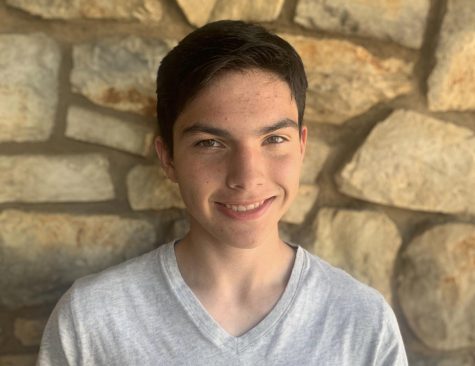Cam High’s German Program: Is German The Right Language For You?
Which language is more practical for a Californian to study: Spanish, or German? At first, some might find the answer obvious; there are many more Spanish speakers than German speakers in the state, after all. But Mr. Asher Stolte, two-year teacher of German at Cam High, offered a compelling counterargument.
“I don’t speak any Spanish, and I live in California, and I haven’t had any problems communicating,” said Stolte. He went on to clarify that although he has picked up a few essentials, such as how to order food and ask for the bathroom in Spanish, these basics hardly required a two-to-four-year high school education to learn. Therefore, Stolte contends, speaking fluent Spanish is not a prerequisite for Cam High students. Instead, Stolte asks students considering which language to take: “What would be most helpful for you?” Those interested in nursing or construction, he exemplified, would certainly be best off taking Spanish. “But when it comes to the STEM or STEAM [science, technology, engineering, the arts, and mathematics] field, German becomes incredibly important,” Stolte emphasized.
Stolte enumerated the opportunities afforded to German speakers in the realms of science and technology, listing Volkswagen, Mercedes, Audi, BMW, and Siemens as huge companies and career possibilities for his students. “Schools are pushing STEAM programs … Germany has great music schools [and] Germany has great technology schools,” Stolte said, emphasizing the educational and career value of studying German. One piece of justification for his argument is displayed in a study from The Economist, which found that Americans who studied German tended to earn more than those who studied Spanish or French.
Stolte made sure to elucidate that the benefits of German fluency are not only for science and technology enthusiasts. “I create a feeling of community,” said Stolte of his teaching style. “Very minimal homework, very low-stress environment. We focus on interesting and compelling information for the students, as opposed to a book with thousands of vocabulary words.” Topics in Stolte’s curriculum include fairy tales and the medieval period, but his teaching style is flexible, focusing on whatever his students are interested in, and hence putting “the student in the middle of the lesson.”
Miles Wellborn, a senior at Cam High, concurred: “I found [German class] to be a very welcoming environment where the teachers want you to succeed,” he said, naming culture days and German games and film as the highlights of the program.
Although Stolte affirmed that teaching this year has become more difficult due to the lack of in-person contact caused by distance learning, he also suggested digital modes of education for those interested in German. According to Stolte, Duolingo and Rosetta Stone are great supplements to in-class learning; he even recommended the German production of Sesame Street, as well as any music, text, or media in German. “If it’s in the language and you can understand it, you’re on the right track,” Stolte said.
In addition to teaching German at Cam High, Stolte sponsors the school’s German Club, which teaches its members about German language and culture through games and trivia. Cam High senior and German Club Treasurer, Nicholas Witucki, acknowledged that distance learning has made it “much tougher to reel in students” for meetings, but encouraged those interested in attending to “learn about German culture … food, dances, entertainment, etc.”
Those interested in German Club, which hosts meetings on the last Thursday of every month, can join with the Remind code @achsge. For more information, contact the Instagram account @achsgermanclub or email Stolte at [email protected].
Stolte, who looks forward to a return to in-person education, which will allow him to share his newly acquired German library with his students, chose to end the interview with a quote from famous German poet Johann Wolfgang von Goethe, known primarily in the United States for his inspiration of the Disney film Fantasia: “Wer fremde Sprachen nicht kennt, weiß nichts von seiner eigenen,” which in English, translates to, “He who does not know foreign languages, knows nothing of his own.”

















































































![Senior Ditch Day... Relaxation or Truancy? [Video]](https://achsstinger.com/wp-content/uploads/2017/10/IMG_7119-900x599.jpg)
![Heavy Rain Hits Cam High [video]](https://achsstinger.com/wp-content/uploads/2017/02/maxresdefault-900x506.jpg)




